Urgh. Enjoy??? (I Started Making This Six Months Ago So I’m Obviously V Productive) ✩✫✬✭✯✮✶✷
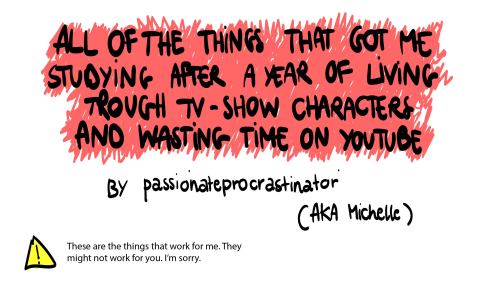
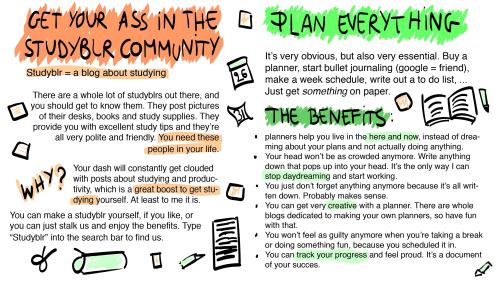

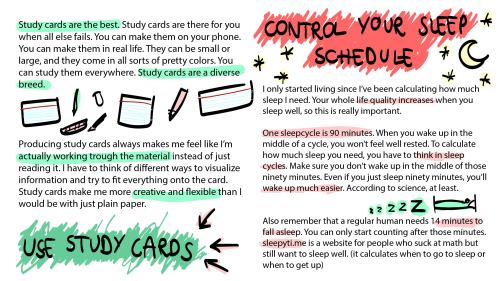
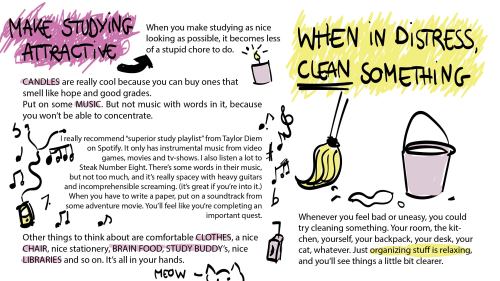


Urgh. Enjoy??? (I started making this six months ago so I’m obviously v productive) ✩✫✬✭✯✮✶✷
More Posts from Amandadiamond and Others
Life Cleanse - What I Did
Deep clean your room - I’m talking about stripping the bed, going through clothes, papers, and belongings and having no mercy. Sweeping and damp mopping the floors. Dusting surfaces. Finding new homes for those miscellaneous items that just sit there in the way.
Delete old contacts - I went from having maybe 30-40 contacts to 14. In other words, delete contacts you haven’t messaged or called in the last two weeks to a month (if so long). If they text you don’t be afraid or feel guilty for asking who it is.
Go through your music library - Play all your songs and if you skip a song delete it without hesitation. The next time you hit shuffle on your playlist you won’t even notice it’s gone. What if you get in the mood for the song? That’s what YouTube is for my friend… or just add the song back onto your phone.
Go through clothes - That dress you haven’t worn once in the past year- toss it. The shirt you swear fits if you don’t raise your arms- get rid of it. Those worn out clothes- dump them. *Of course there can be exceptions but within reason.
Journal - Write down any thoughts to cleanse your mind. Any ideas you might have. Good things that happened that day. Bad things that happened. Things you’re grateful for. It helps so much. Try it for at least three days straight and you’ll notice how much better you feel. Problems might not disappear completely but it’ll give you the strength to get through another day.
Don’t try to force things to work out - It’s so hard and it can be upsetting when things don’t, but sometimes the best thing you can do for you is accept the way (some)things are.
Don’t be hard on yourself for messing up - It can be easy to physically or mentally punish yourself for making a mistake no matter how big or small, but I’ve learned that doing things like starving yourself, beating yourself up (literally), or just scolding yourself repeatedly doesn’t improve the situation and it doesn’t improve yourself.
Cut toxic people off - Remove them from your life physically (which sometimes takes time). Unfriend them from social media. Remove prominent traces of them from your life. It’s like suddenly a weight comes off of your shoulders.
Practice self love - I write/say this so often and sometimes I feel like it’s so hard to do sometimes but it’s not. I’m talking about taking a break when you need to. Drinking water. Moisturising your skin. Getting enough sleep. It’s the little things like that that count as self love.
Don’t runaway from your problems - It’s tempting and hard but it’s important to face any problems you’re facing. No one is saying you have to be strong 24/7, only that you should try.
Delete old files - Go through you computer, tablet, phone, USB drive etc. Delete old unimportant documents, old photos, music, apps and more.
Promo: Like or interested in my tips and want to contribute yourself? Check out my new project Illuminate! Even if you don’t apply, please pass it along to those you think would be interested. Thank you!
eleven little self care tips for students
Get enough sleep. Your brain needs it. Set yourself a ‘bed time’ and fall into the routine of going to bed and waking up at the same times each day.
Drink water and lots of it. Aim for 2 litres a day. This one’s easy, you can do it. Ditch the juices and carbonated beverages, just add a slice of lemon to your water if you feel like something fancy.
Allow yourself to switch off. Don’t be afraid to read books that have nothing to do with your studies. Go to the cinema. Work out. Take your mind away from your workload.
Take care of your skin. Wash your face every morning and night. Moisturise after every shower and bath. Don’t go to bed with your make-up on, no matter how tired you are.
Talk to your friends and family about something other than school. Don’t let your studies detach you from the things going on around you.
Work out. Even just once a week, or whenever you can. Go for a walk or a run, maybe just for 15 minutes. Follow along with a YouTube exercise video from the comfort of your own home or try out some yoga moves.
Make time for your hobbies. Studying is your full time job, but there’s plenty of hours left in the day. Don’t neglect the things you love.
Cook. Sometimes all we have time for is microwave noodles, but don’t fall into the habit of relying on the basics. You’ll feel the difference.
Don’t forget to laugh. Watch a hilarious film. See a comedian at a local venue. Watch funny videos on YouTube. Reminisce with friends. It’ll do you good.
Ditch the caffeine. Don’t rely on Starbucks. It’s delicious but you don’t need it. Save up all the money you’d usually spend on coffee and treat yourself to something instead.
Make your bed every morning. You’ll be grateful at the end of a long day when you can get into a cosy bed that doesn’t look like you just rolled out of it.
an ultimate guide to crafting your daily schedule 👀✨





‘Ello, mate! It’s werelivingarts and I’m here with a simple guide to manage your time and prioritize your tasks with only 3 steps ~
Before planning anything, For me (you guys might have different approach), I find recognizing my energy level pattern really helpful because I can prioritize tasks and get the done in my most productive time rather than forcing myself to cram for homework after midnight. 🌚🌝
I start planning my day by dumping all of the tasks I remember down to to-do list using Bear, and then I would organize these tasks if they are daily, weekly or monthly task on Edison app – which also allows time blocking. After that, I would prioritize tasks daily on app Success. (This is not ad, this is just helpful apps that I use). 😎
Hope you find this helpful in some ways! Thank you for reading! ❤️💜💙
Totally right 👌😂


lively and ethereal people VS sleep deprived creatures of the night












🧛🏼 VAMPIRES + SUNGLASSES 😎 Buffy the Vampire Slayer (1997) Twilight (2008) Only Lovers Left Alive (2013) Bram Stoker's Dracula (1992) Near Dark (1987) The Twilight Saga: New Moon (2009) The Hunger (1983) Wednesday (2022-) Interview with the Vampire (2022-)

hello pals!! this is a masterpost of half (or so) of the reference posts i reblogged/made. i tried uploading this masterpost as just one big masterpost but i had over 250 links so that failed and here i am again. here is part one, encapsulating studying + certain subjects which will be followed by part two (slightly more general) here! enjoy ✨
studying, school, + learning
what i’ve learnt throughout my years of being a student
notes, studying, and self-study resources
self-study resources
starting a studyblr
college + uni
how to get studying
online study guides
good habits
exams!
study management
school is starting soon
back to school (1)
back to school (2)
back to school (3)
back to school reminders
50 things to know for back to school
get prepared for a new school year
school resources
final grade calculator
writing emails to professors
cheap textbooks etc!!
save money on textbooks
school
first week of school stuff
testing effect
make studying fun
high school tips
101 study tips
types of learners
lazy kid’s guide to good grades
catching up on missed work
university tag
igcse resources
sat tag
act tag
ap tag
ib tag
a-level revision tips
diy school supplies
test taking tips
a complete guide to studying (well)
time to study!
groupwork (1)
groupwork (2)
tips tag
study effectively from textbooks
studying better
surviving your least favourite class
studying a subject you hate
success
doing research
understanding the question
pomodoro
study tips
tactile learning
how to concentrate
concentration
exam day
ultimate study masterpost
study tips for exams
school survival
studying on the go
how to read academic journal articles
how to study smart
how to remember anything in 3 steps
distraction-free studying
motivation
my study instagram + study blog
+ motivation links
motivation masterpost
stay motivated
get that homework done!
reaching goals
getting motivated
motivation through anime
writing
writing tag
recover an unsaved draft
uni writing resources
add citations!
annotating (1)
annotating (2)
advice for writing papers
writing helps
essay writing tips
how to write an essay
writing term research papers
active vs passive voice
writing masterpost
academic writing resources
essay checklist
reduce your word count
essay writing links
how to write and execute a huge piece of work
summary writing
the discursive/argumentative essay
the narrative essay + the descriptive essay
note-taking
note-taking in class
cornell note-taking
cornell (2)
lecture notes
illustrating notes
banners
maintaining good notes
note-taking
sticky notes
flashcards
colour-code + highlight effectively
colour-coding
studying from textbooks
study guides
upgrade your notes
illustrate your notes
mind maps
note-taking for different lecture types
ribbon drawing
smart highlighting
lettering ideas
how i take notes
note-taking tips
aesthetically pleasing notes
fake cursive notes
languages + literature
the ultimate english masterpost
shakespeare
literature masterpost
annotating
studying a foreign language
100+ legal sites to download literature
approaching poetry analysis
write a killer unprepared text essay
literary analysis research papers
classics
how to ace lit
reading lit
write a rhetorical analysis essay
practice oral comprehension!!
how i study for english lit
poetry analysis (1)
poetry analysis (2)
how i learn languages
self-studying languages
languages tag
how to open a new book
literary devices
literaty devices w/ printables
literature masterpost
grow your vocab
a guide to vocab
language learning tips + resources
SUPER IMPORTANT FOR POLYGLOTS
tips + tricks for learning a language
chinese
english
french
german
greek
italian
japanese
korean
latin
maltese
polish
russian
spanish
swedish
humanities + other subjects
studying humanities subjects
gathering materials for a humanities research paper
philosophy
philosophy tag
psychology tag
politics + government
women of wwi
ap world history
coding
design resources
sciences + math
how to memorise diagrams
biology (1)
biology (2)
studying biology
biology help
biology note-taking
anatomy + physiology
physiology
physics
ap physics
chemistry (1)
chemistry (2)
chemistry note-taking
studying chemistry
maths tag
how to study for math
how to study math (1)
how to study math (2)
math (1)
math (2)
math (3)
10 tips to excel in maths
avoid carelessness in calculations
succeed in math without really trying
math resources and links
algebra (1)
algebra (2)
precalculus
geometry
space + astronomy (1)
space + astronomy (2)
hope this helps + please check out part 2 as well!! ilysm 💗
ps here is a list of all my masterposts just in case 🐝
- helena xx

Gemma Ward @ Alexander McQueen Fall 2006
How I Got Straight A’s in My First Year of University
I was so proud of myself when I received firsts (that’s A’s for those not attending uni in the UK) on all of my assessments in my first year at university. Here are some tips for y’all to try at any point in university. They may be specific at times to my experience—my degree is in the social sciences and humanities, and I’m studying in the UK—but I did try to make them more generally applicable, and hopefully they should be helpful to someone out there.
Part One: Everyday Study Routine
Before the start of the academic year, try to get in a little bit of preparation. See if there are any syllabi or reading lists posted online. You don’t have to pour over them, of course, but do attempt to do something, and have a basic grasp on what will be covered in your classes.
Go to all your lectures and seminars. Unless you absolutely have to miss class because you are ill or have an important obligation to take care of, it’s really important to attend your lectures every day. (Note: if you are struggling with mental or chronic illness or a disability, don’t beat yourself up if you keep missing class. Please take care of yourself.) You may be tempted to just look at the PowerPoint presentation online, but it’s much more effective to be there in person. Often the lecturer may include information or extra explanations which are not included in the presentation. It will also allow you to process the information aurally as well as visually, and you will have the added benefit of taking notes too. You may also be able to ask questions.
Do all the pre-reading for lectures. I know it’s tempting to put it off, but try to work it into your daily routine (because you will have reading to do every day). Inevitably, there will be times where you slip up and don’t have time to finish. If this happens, make sure you catch up on it at some point, because it’s very important to solidifying the concepts you are learning about. Also, the more you read in general, the better you will become at reading (and also writing).
Take diligent notes (for both your lectures and pre-reading), and keep them organized. I prefer to handwrite in a notebook, as it helps me synthesize information rather than just typing it out verbatim—but it is totally up to you. If you do use a notebook, make a table of contents on the first page, where you write the date, topic, class, and page numbers of each set of notes you take. I think it’s a great idea to include your own thoughts and opinions in notes, or linking concepts you are learning to concepts you already know about.
If you have the time, make sure to be reading books/essays/articles and engaging with ideas outside of your regular syllabus. This is one of the most important techniques (in my experience, at least) when it comes to writing essays and answering exam questions. Evidence of wider reading around a topic is a great way to boost the credibility of your argument. It also does wonders to solidify and broaden your conceptualization of certain ideas you may have covered in your classes.
Where possible, try to contribute (as much as you feel comfortable) in seminars. If you are very quiet and reserved, that is totally okay too. I’m with you. But it has helped me tremendously in the past year to push myself to speak up more often in seminars. Talking in seminars allows you to clarify concepts and engage more deeply with the material being discussed (and it might impress your seminar tutor too, though this is secondary to the learning in my opinion).
If you have some nerdy-ass friends, talk with them about your ideas and what you’re both learning in your courses. I can’t tell you the number of essays I’ve written which actually have blossomed out of conversations I’ve had with friends, where they’ve exposed me to topics I’d never heard of before or broadened my view of a concept. Learning from each other in a casual and fun setting is amazing!
Part Two: Assessment Time
When you are given notice about big assignments coming up, such as essays or group projects, try to start working on them ASAP. Trust me, I know how hard it is. This is coming from someone who has dealt for years with chronic procrastination issues and nearly didn’t graduate from high school because of it. But you must start planning as soon as you possibly can, because the due date will come screaming up and before you know it, it’ll be the night before the deadline and you won’t have a clue what you’re writing about. Work it into your daily schedule if you have to. One great tip is to write down the deadline as being earlier (say, a week earlier) than what it actually is. This will prompt you to start earlier than you normally would have.
Do a shitload of reading, widely, from multiple sources. Read everything you can on the topic you are doing your assignment on. For a basic literature review, this means looking through at least 20+ sources. That doesn’t mean carefully perusing each one front to back; it means looking through all the relevant literature to find a few great sources which will really give you a coherent argument and a big picture of the topic at hand.
Keep your sources organized. I use Paperpile, which is a Chrome extension that allows you to save and organize academic sources. I make a folder for each assessment I am working on, and anything I find relevant to my topic, I save it to the folder. This will be a life saver for you when you actually go to plan your paper and also do the referencing.
Content is important, but perhaps even more important is your argument and structure. This mostly applies to essays, but you can apply it to other types of assessments too. Try not to structure your argument in terms of blocks of content—e.g. Paragraph 1 is about Topic A, Paragraph 2 is about Topic B—but rather in terms of how you are laying out your argument. Make sure each part of your essay flows into the next, so that you are, for example, setting up a kind of dialogue or narrative between the different sources you’re using. Also ensure that any point you are making clearly relates back to your main thesis.
If you’re a perfectionist like me: train yourself to remember that there is no such thing as perfect. Try to imagine what the perfect essay would be like. Can you imagine it? It’s probably pretty difficult, right? That’s because there is no such thing as a perfect assignment. Remind yourself of this, constantly. Tell yourself that you will be okay with just doing your very best. If you think about it logically: handing in something that is perhaps not your best ever, but handing it in on time and doing pretty well, is infinitely better than attempting to have a “perfect” essay but handing it in late and failing the assignment.
I hope this helped some of you! Best of luck and happy studying this year—go knock ‘em out! xo
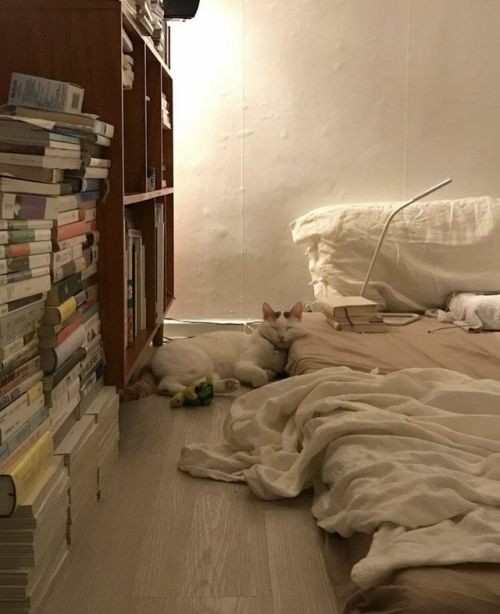





photos under my "dream home" board in pinterest.

So, it’s that time of the year again, back to school. And right now, some of you are probably panicking a little because, let’s face it, school starts soon and you have not glanced at your to-do list since June. But don’t be afraid, lots of us are in the same boat. I myself ambitiously drafted out a long list of things to do this summer, including studying C++, studying Chinese, preparing for new course work, studying quiz bowl, and exercising. However, I was abroad for five weeks, spent lots of weekends at the beach, slept in, and generally slacked off. Now, it’s not too late to pick up the pace and get into the study grind to get a good start this school year. Below are some useful tips!
Academic Tips:
Print off your new school schedule immediately and build your personal schedule around that. (Figure out which time blocks are for studying, exercise, sleep, mealtime, extracurriculars, and chill time.)
Buy a planner and start using it. It doesn’t have to be personalized or fancy, just make sure it suits your taste and is usable. Even though you may not have classwork right now, start using it to complete tasks and get in the habit of writing in it.
Search up your teachers/professors on RateMyProfessor to (kinda) know what you’re in for. Obviously, those reviews are a little skewed so read them with a grain of salt, but know which professors are lecture heavy and which classes rely on the textbook. This really helped me last year.
Get in the habit of reading and writing a bit everyday. That way, your first assignment won’t be nearly as painful. Just write a little in a journal or read some NYT articles to critically engage your brain.
Look over the first chapter of your textbooks. The first chapter and introduction in books really explain what the course is about, so if you’re afraid of feeling stranded in class, read them.
If you have questions or concerns about your courses, email your professors or teachers. They want to help their students.
Map out where you have to go for each class. Whether it’s changing floor in the same building or booking it across campus, make sure you know where you’re going the first week of class. Highlight your routes on a map of the school if you need.
Lifestyle Tips:
It’s nice to sleep in over summer break, but start waking yourself up earlier. Figure out what time you need to wake up, factor in the 7-8 hours of sleep you need, and determine the ideal bedtime. Set an alarm and start slowly winding back your wake up time. For example, if I need to get up at 7:00 AM for school, I’ll sleep until 8:30 for one week. Then I’ll wake up at 8:00 the next week, and 7:30 the week after that so my body can slowly adjust to the earlier mornings.
On a similar note, start going to bed at the appropriate time. It may be frustrating to do so when it’s still bright out at night, but this really helps your body adjust. The lights from devices keep you up, so get accustomed to ditching the electronics before you get in bed.
Make sure your outfits are school ready. I know my math lecture is in a really chilly old building, so I’m pulling out a few sweaters to bring with me to class. If your school has a dress code (which can be annoying) or uniform, make sure your outfits comply.
Get your bag and supplies ready. This is fun for me, because I usually end up shopping and getting some new cute accessories and stationery.
Start a new healthy habit with the school year. This is a good time to try to stick in something new. Get a reusable water bottle and try to drink 8 cups a day, or add meditation to your night routine. You won’t regret it!
Now, most of these tips are applicable to both high school and college, but if you want high school or college specific tips, let me know in my messages or ask box and I’ll make another post. Have an amazing school year!
– studyboba (Janet)
-
 scr4tchpaper reblogged this · 1 month ago
scr4tchpaper reblogged this · 1 month ago -
 studythings reblogged this · 2 months ago
studythings reblogged this · 2 months ago -
 vastscope liked this · 3 months ago
vastscope liked this · 3 months ago -
 leipikake liked this · 4 months ago
leipikake liked this · 4 months ago -
 kennedypeterson liked this · 5 months ago
kennedypeterson liked this · 5 months ago -
 caitydid69 liked this · 5 months ago
caitydid69 liked this · 5 months ago -
 whoamitotellyouwhoiam reblogged this · 6 months ago
whoamitotellyouwhoiam reblogged this · 6 months ago -
 annarm02d liked this · 6 months ago
annarm02d liked this · 6 months ago -
 absorbedinlife liked this · 8 months ago
absorbedinlife liked this · 8 months ago -
 tiredshroom reblogged this · 11 months ago
tiredshroom reblogged this · 11 months ago -
 journal-journies reblogged this · 1 year ago
journal-journies reblogged this · 1 year ago -
 iernos liked this · 1 year ago
iernos liked this · 1 year ago -
 ladyofmisfortune liked this · 1 year ago
ladyofmisfortune liked this · 1 year ago -
 istanbul2020 liked this · 1 year ago
istanbul2020 liked this · 1 year ago -
 bigpoppadean liked this · 1 year ago
bigpoppadean liked this · 1 year ago -
 dionesguide reblogged this · 1 year ago
dionesguide reblogged this · 1 year ago -
 dionesguide liked this · 1 year ago
dionesguide liked this · 1 year ago -
 cocosel liked this · 1 year ago
cocosel liked this · 1 year ago -
 kipketer4 reblogged this · 1 year ago
kipketer4 reblogged this · 1 year ago -
 chaesandtybudja liked this · 1 year ago
chaesandtybudja liked this · 1 year ago -
 inagarexclas liked this · 1 year ago
inagarexclas liked this · 1 year ago -
 irfediwankai liked this · 1 year ago
irfediwankai liked this · 1 year ago -
 leufoltitalyn liked this · 1 year ago
leufoltitalyn liked this · 1 year ago -
 jupiterac reblogged this · 1 year ago
jupiterac reblogged this · 1 year ago -
 blogthebooklover liked this · 1 year ago
blogthebooklover liked this · 1 year ago -
 preqolnala liked this · 1 year ago
preqolnala liked this · 1 year ago -
 riiplewqueblood liked this · 1 year ago
riiplewqueblood liked this · 1 year ago -
 cubitumaemus reblogged this · 1 year ago
cubitumaemus reblogged this · 1 year ago -
 deshiknaves liked this · 1 year ago
deshiknaves liked this · 1 year ago -
 saprobiont liked this · 1 year ago
saprobiont liked this · 1 year ago -
 jus1 liked this · 1 year ago
jus1 liked this · 1 year ago -
 hotspothutspot liked this · 1 year ago
hotspothutspot liked this · 1 year ago
95 posts